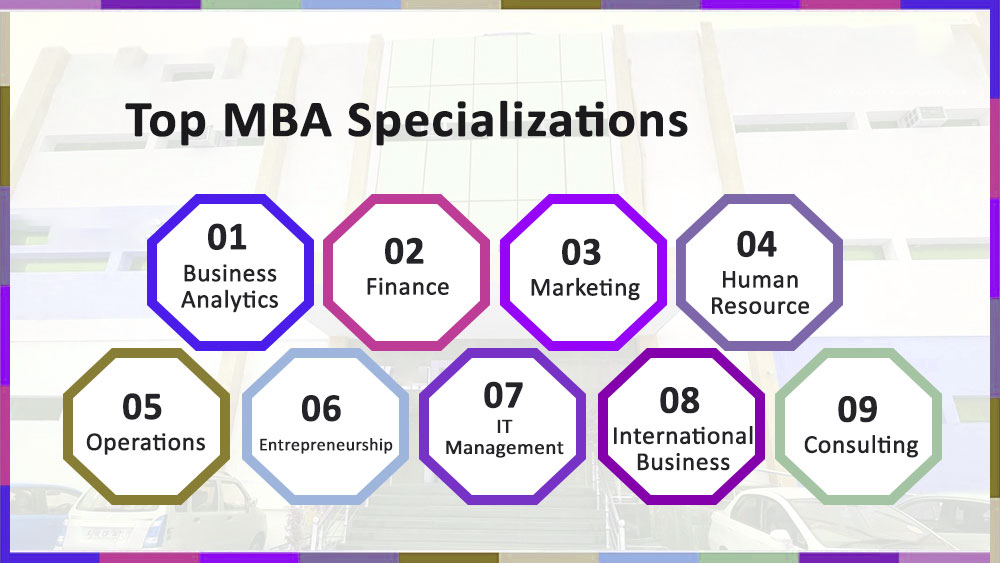When we examine successful entrepreneurs like Steve Jobs, Mark Zuckerberg, and Bill Gates, all titans of industry who changed the world with their innovations, one commonality among them is the absence of an MBA degree. Indeed, many were even university dropouts. From this, it’s clear that one doesn’t need a degree to launch a startup.
However, the focus of an MBA degree is to equip students with an understanding of the business industry, providing them with the knowledge that could, in some way, facilitate their entrepreneurship journey.
Understanding the MBA Degree
An MBA, or Master of Business Administration, is a highly valued degree that endows students with the skills necessary for a career in business management. Pursuing an MBA teaches you to successfully manage, lead, organise, and adapt to various business environments. The practical skills and theoretical knowledge gained from an MBA programme can aid you in the industry and when setting up your own business.
To gain entry into a top MBA programme, you’ll need to pass an entrance exam such as the CAT, MAT, GMAT, etc. Each university or college has a different process, and thorough research should be undertaken before deciding where to apply.
The core curriculum of an MBA degree includes subjects such as accounting, economics, marketing, and operations, as well as elective courses that allow students to pursue their personal or professional interests.
Internships form a significant part of this course. Many job recruiters look for students who have work experience, making internships a valuable opportunity for those studying while working.
Popular Specialisations in the MBA Degree

- Accounting: An MBA in Accounting equips entrepreneurs with the ability to understand and manage financial operations effectively. It aids in making informed decisions about investments, financial strategies, and tax planning, ensuring the financial health and sustainability of their startups.
- Human Resources: Specializing in Human Resources provides entrepreneurs with the knowledge to attract, retain, and develop a strong team. It enables them to create an optimal workplace culture, manage employee relations, and align human resources strategies with their business objectives.
- Finance: An MBA in Finance empowers entrepreneurs to make sound financial decisions and manage investments effectively. It provides a solid understanding of cash flow management, investment planning, and risk assessment, which is crucial for the financial stability and growth of their venture.
- Marketing: With an MBA in Marketing, entrepreneurs can effectively position their products or services in the marketplace. They gain insights into consumer behaviour, digital marketing strategies, and brand management, enabling them to reach their target audience and build a strong brand.
- Economics: Specializing in Economics, entrepreneurs gain a deeper understanding of market dynamics, economic forecasting, and policy implications. This knowledge aids in strategic planning, pricing decisions, and understanding the impact of economic trends on their business.
The Advantages of an MBA Degree
An MBA degree lends you recognition and the leadership skills needed in the workplace. This postgraduate degree prepares students to work in a wide range of business organisations, imparting the right knowledge and expert advice. An MBA is currently the most popular internationally recognised professional degree worldwide. It opens up a broad range of career opportunities for students.
If you start your own venture, an MBA degree can help you develop:
- Strategic Thinking: An MBA program equips students with the tools and frameworks needed for strategic thinking, allowing them to make informed business decisions. It encourages problem-solving and critical thinking, necessary for navigating the complexities of running a venture.
- Business Acumen: The course offers a deep understanding of all aspects of business, including finance, marketing, operations, and human resources. This comprehensive knowledge helps entrepreneurs manage diverse business functions efficiently.
- Network Building: MBA programs provide the opportunity to connect with a diverse network of professionals, including classmates, faculty, and alumni. These connections can prove invaluable when seeking advice, partnerships, or even funding opportunities.
- Leadership Skills: MBA courses focus on developing leadership and management skills. This training helps entrepreneurs inspire and lead their teams effectively, fostering a productive and motivated workforce.
- Entrepreneurial Skills: Many MBA programs include modules on entrepreneurship, equipping students with the skills to launch and manage their own businesses. This includes understanding business plans, market analysis, and capital funding.
- Credibility: Having an MBA degree adds credibility, especially when dealing with partners, investors, and clients. It signifies your understanding of business and your dedication to mastering the craft.
- Risk Management: MBA programs teach students how to anticipate, manage, and mitigate business risks. This knowledge can be crucial in determining the success and sustainability of a startup.
- Understanding of Global Markets: Many MBA programs offer insights into global business trends and international markets, essential for entrepreneurs planning to expand their businesses overseas.
- Practical Experience: Through case studies, internships, and projects, MBA students get to apply theoretical concepts in a practical context. This practical experience can be extremely beneficial when starting your own venture.
- Confidence: Last but not least, the broad knowledge and skill sets gained during an MBA program can boost your confidence as an entrepreneur. Knowing that you have the training and knowledge you need can give you the courage to take calculated risks and make bold decisions.
Traditionally, the industry has demanded a two-year MBA programme, but one-year MBA programmes from abroad have become increasingly popular. Also, there are various part-time and online programmes available for those who wish to work while they complete their MBA. This has also become highly sought after these days.
The average salary of an MBA graduate may be around 20 lakhs per annum, but this differs from company to company and also depends on your experience in the field.
What to Consider Before Pursuing an MBA?

The most significant asset you need for your CV to shine is experience. It’s important to have both practical and theoretical knowledge of the field you want to get into before you start working, and the best way to attain that is by gaining as much experience as possible.
Entrepreneurship is all about experimenting with ideas, learning from mistakes, and optimising sustainability and scalability.
It’s a fact that all world-renowned entrepreneurs who lack an MBA degree have a wealth of experience to back them up. All role models experimented, failed, and learned from their mistakes to reach where they are today. It’s not an overnight process and requires a lot of hard work and leadership skills to succeed.
However, all the major companies they represent as the face of the organisation prefer educated and skilled employees who hold an MBA degree.
- Accreditation: Accreditation is a sign of a program’s quality and reputation. Ensure the MBA program you choose is accredited by a globally recognized body, which guarantees that it meets high academic standards and can enhance your employability post-graduation.
- Location: The location of your MBA program can significantly influence your learning experience and job prospects. Consider if you’d like to study in an urban or rural setting, your proximity to potential employers, and the local business ecosystem.
- Budget: MBA programs can be expensive, so it’s essential to consider the tuition fees, cost of living, and potential student loans. Look for scholarships, financial aid, and consider the return on investment the program offers.
- Placement Record: The school’s track record for job placements can be a good indicator of the program’s quality and the value it brings. Consider the employment rate, the types of companies where graduates are placed, and the average salary.
- Faculty: The quality of faculty members is crucial to your learning experience. Look for faculty who have industry experience, are engaged in relevant research, and have a passion for teaching. Faculty’s industry connections can also be beneficial for networking and internships.
- Curriculum: Lastly, ensure that the curriculum aligns with your career goals. Consider the courses offered, the availability of specializations, and practical learning opportunities. Also, check if the teaching style suits your learning preference – some programs may focus more on case studies, while others might emphasize theoretical learning or experiential projects.
Can an MBA Make You a Better Entrepreneur?

The question on everyone’s mind is: Can an MBA make you a better entrepreneur? The answer, to some extent, is YES. Knowledge is crucial when you lack experience. Most MBA courses offer a historical overview of business cases, understanding the factors for success and failure, business models, financial aspects, various problems, their analysis, and possible solutions.
- Planning Before You Start
It’s always better to plan everything before you get started. You should know about the field you want to get into. Just as your business idea requires validation and optimisation before hitting the market, you need to have knowledge about all aspects of entrepreneurship before setting up a startup.
An MBA is designed to create better entrepreneurs, equipping you with an understanding of customer segments, channels, networks, cost management, resource management, and various other aspects instrumental to business success.
- Setting the Right Mindset
The MBA programme is designed to foster the right mindset to think like an entrepreneur. The course’s framework cultivates the necessary skills for you to become a successful entrepreneur when you’re ready to set up your own venture. The subjects will prompt you to think differently and approach problems in the most effective way.
- Gaining Experience
An MBA degree offers a plethora of opportunities for aspiring entrepreneurs. Many existing startups are ready to bring you on board, providing a significant platform to test your knowledge in real life by working in a reputable position for a startup company.
This will help you optimise your knowledge, understand real-life aspects of handling resources and customers, deal with real-life problems and risks, and come up with innovative solutions by applying the knowledge you’ve gained.
The MBA degree is the closest real-life entrepreneurship experience among all the courses. If you aim to become a better entrepreneur, it’s advisable to pursue an MBA degree. After all, it’s wiser to start your venture fully equipped rather than entering the battlefield empty-handed.





